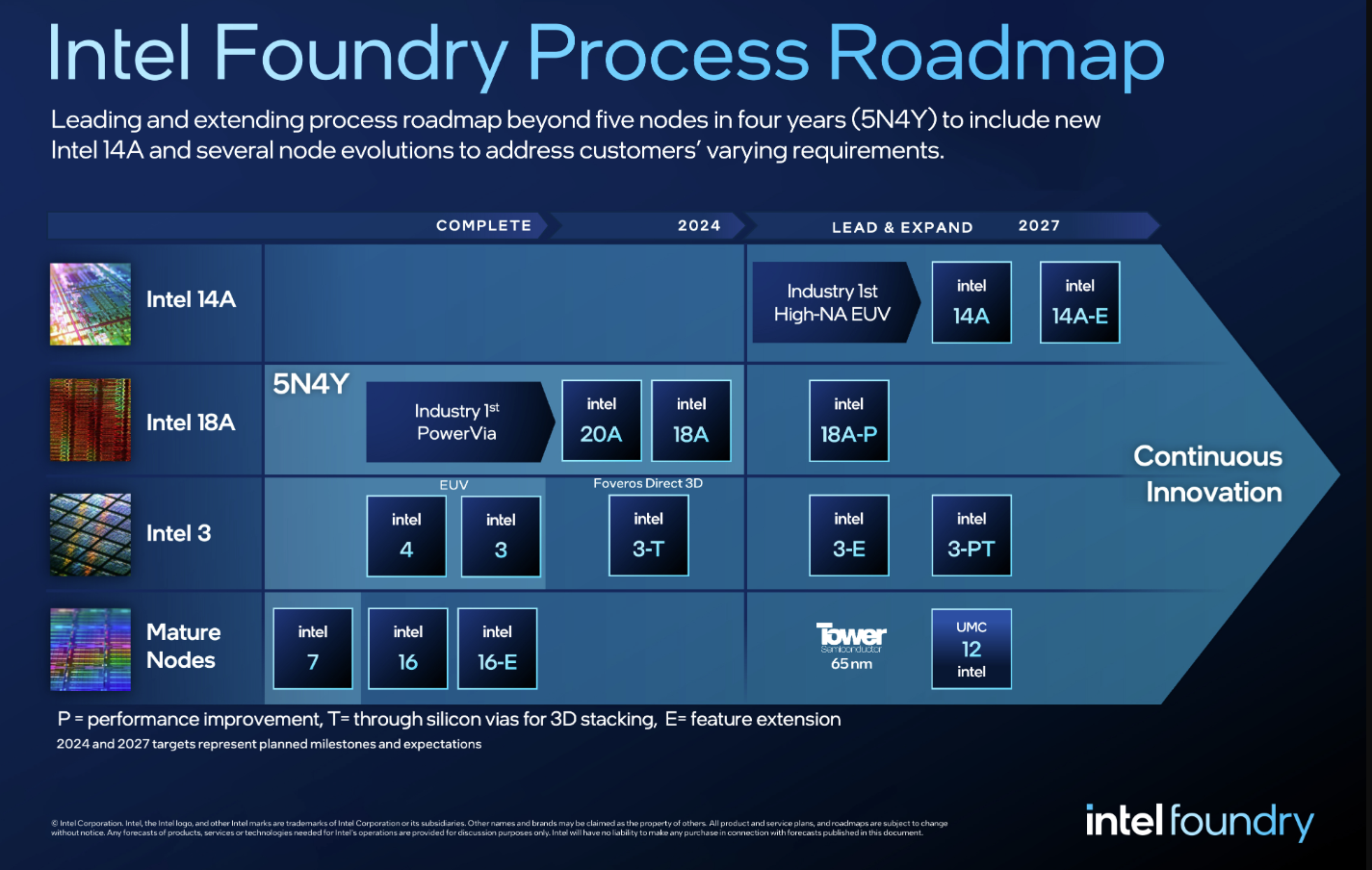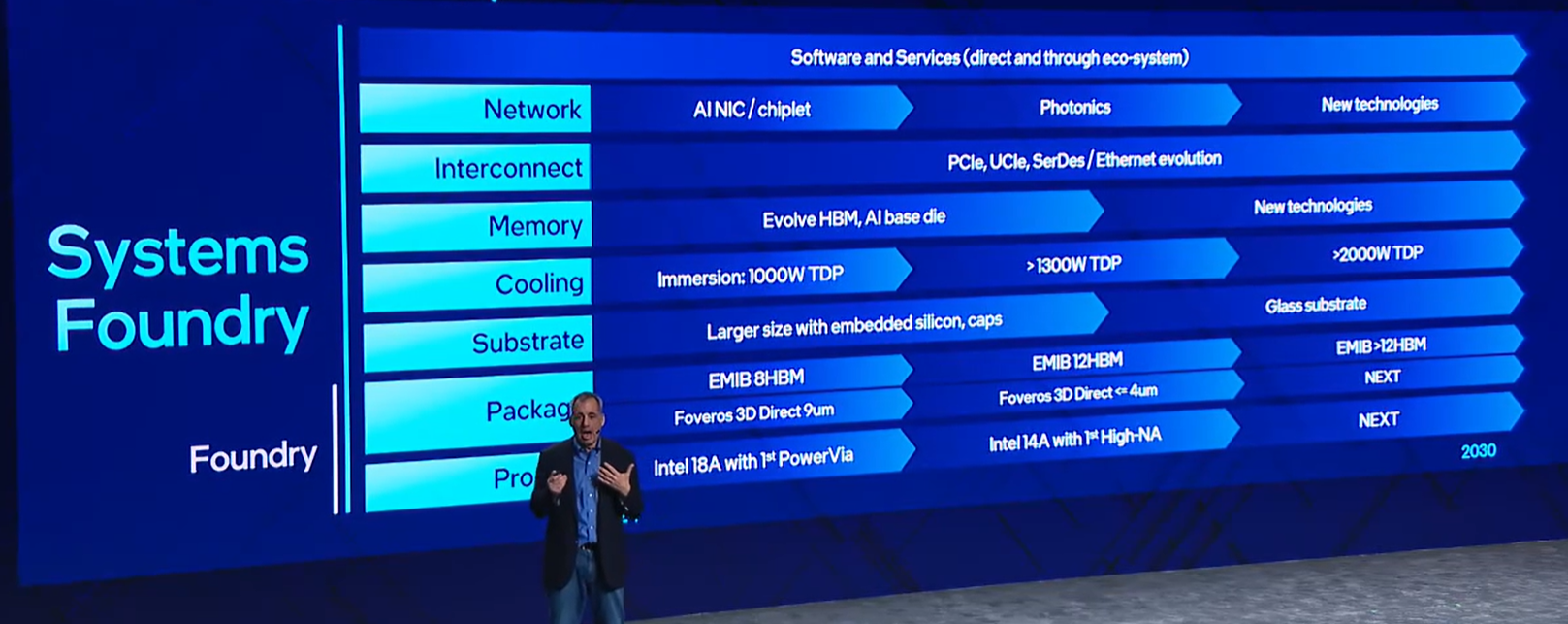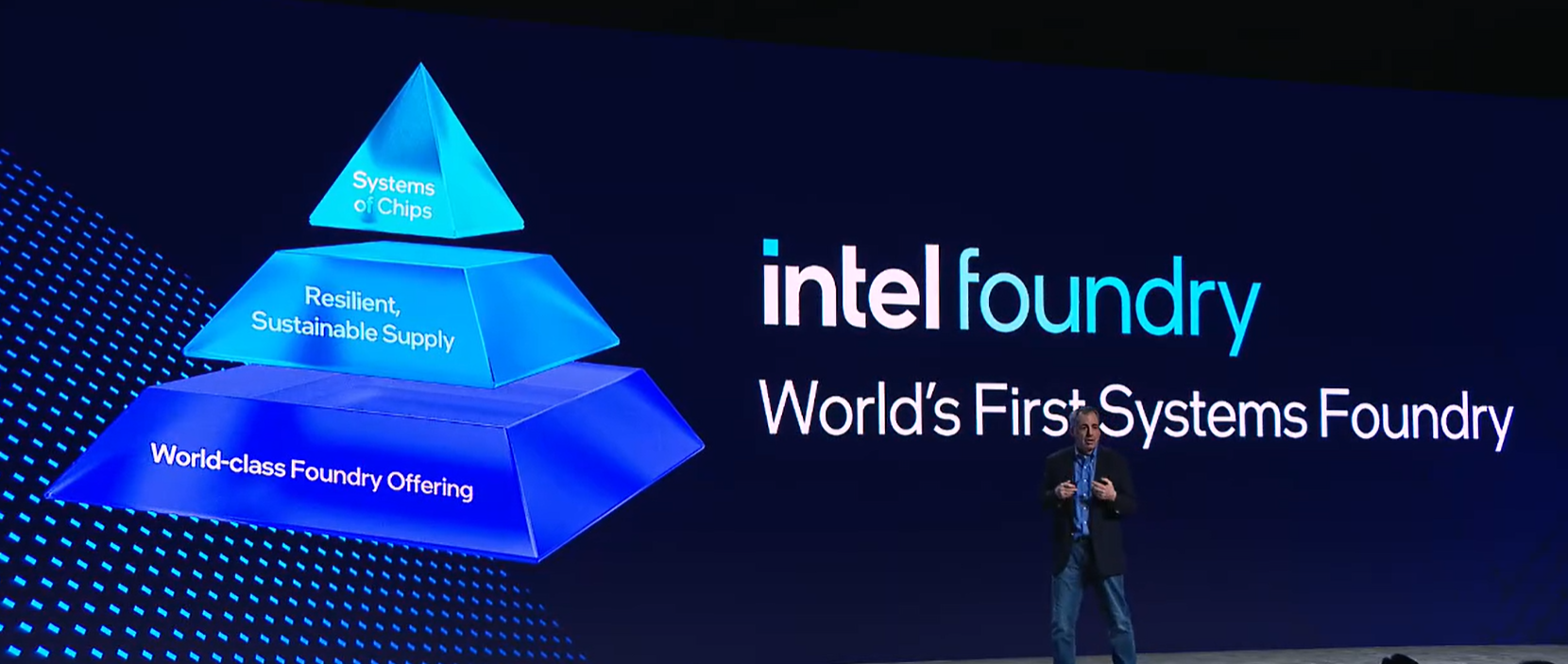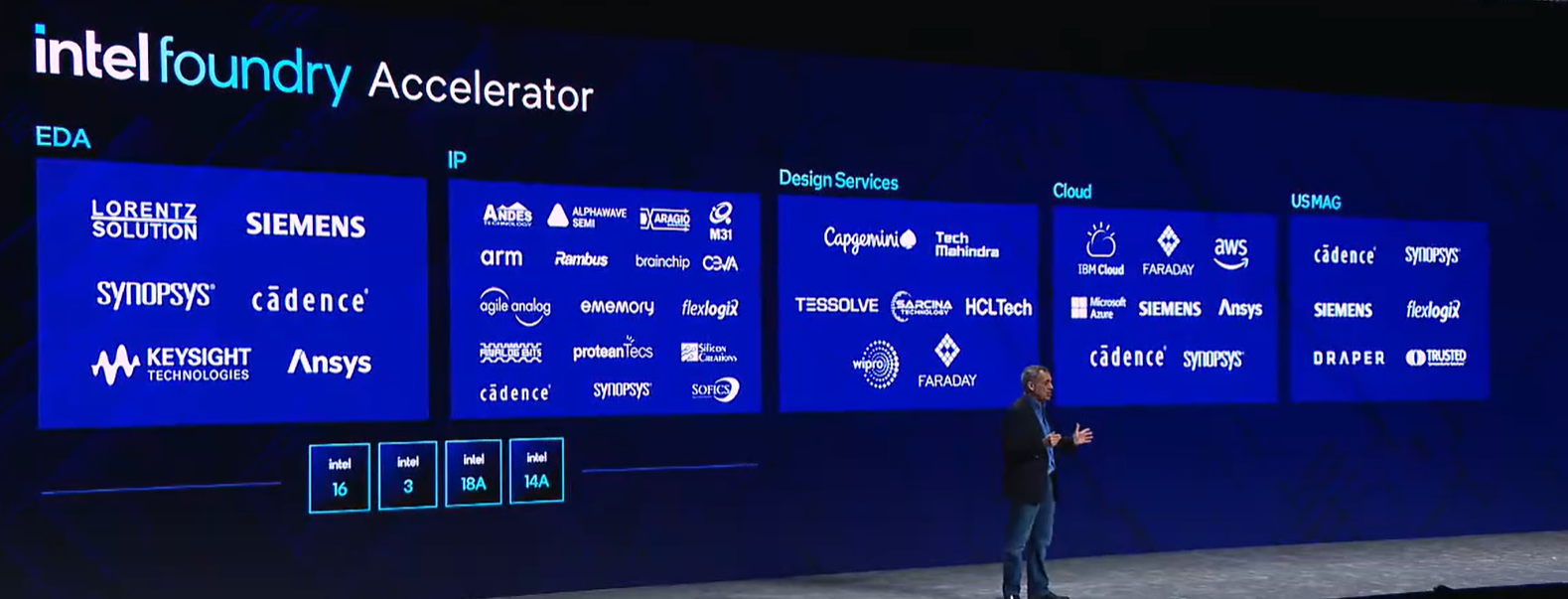Intel Foundry sets roadmap, aims to be No. 2 foundry by 2030
Intel CEO Pat Gelsinger launched Intel Foundry and a roadmap for process technology that'll manufacture artificial intelligence processors for internal and external customers. The bet is that Intel Foundry can be the manufacturer for a wide range of AI systems.
The goal is to be the No. 2 foundry by 2030. The lifetime value for Intel Foundry deals is $15 billion so far. For context, TSMC did $19.62 billion in net revenue in the fourth quarter. Intel executives argued that Intel Foundry’s systems approach will trump TSMC over time.
At IFS Direct Connect 2024, Gelsinger said "I want to manufacture every AI chip." To get there, Intel Foundry outlined a new roadmap with Intel 14A process technologies, advanced system assembly and test capabilities and a design win with Microsoft, which will manufacture a chip on Intel's 18A process.
In addition, Intel Foundry announced a series of partners including Synopsys, Cadence, Siemens and Ansys. The event features a series of speakers including ARM CEO Rene Haas and Open AI CEO Sam Altman.
- Intel's AI everywhere strategy rides on AI PCs, edge, Xeon CPUs for model training, Gaudi3 in 2024
- Why enterprises will want Nvidia competition soon
- Nvidia's uncanny knack for staying ahead
- GenAI trickledown economics: Where the enterprise stands today
The upshot to the Intel Foundry event was that Intel can enable a resilient semiconductor supply chain in the US. Gelsinger affirmed Intel's plan to launch five process nodes in four years.
Intel, which is lagging behind Nvidia in GPUs and accelerating computing and battling AMD on GPUs and CPUs, is betting that it can use its manufacturing heft to become a rival to TSMC. "There are only a few companies that can do this. That have the capital, capacity and resilience," said Gelsinger, who positioned Intel as a stabilizer amid economic and geopolitics turmoil.
Gelsinger said Intel plans to regain process leadership with Intel 18A in 2025.
Here's a look at Intel Foundry's roadmap.


Can Intel pull off its Intel Foundry plans? Certainly, Intel has a big customer in Microsoft. Microsoft CEO Satya Nadella said that the company has chosen a chip design that'll be produced on Intel's 18A process.
Intel also has electronic design automation (EDA) partners lined up with Synopsys, Cadence, Ansys and others.

The company will also work with Arm under a partnership where Intel Foundry will provide services for Arm-based system on chips.
For Gelsinger, the game plan is to expand Intel's reach into the total addressable market (TAM) for AI processors. He said:
"We're engaging in 100% of the AI TAM clearly through our products on the edge and PC and clients and then the data centers, but through our foundry. I want to manufacture every AI chip in the industry, Those being done by the cloud service providers, merchant providers and technology providers. We'll be the systems foundry for the AI era where semis are essential."


